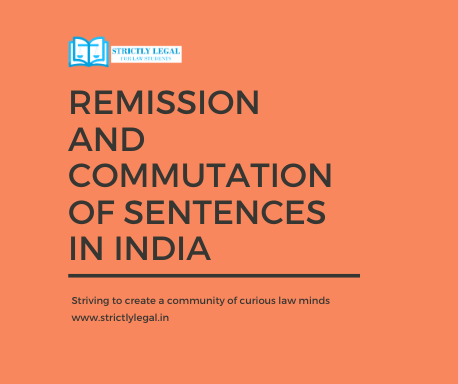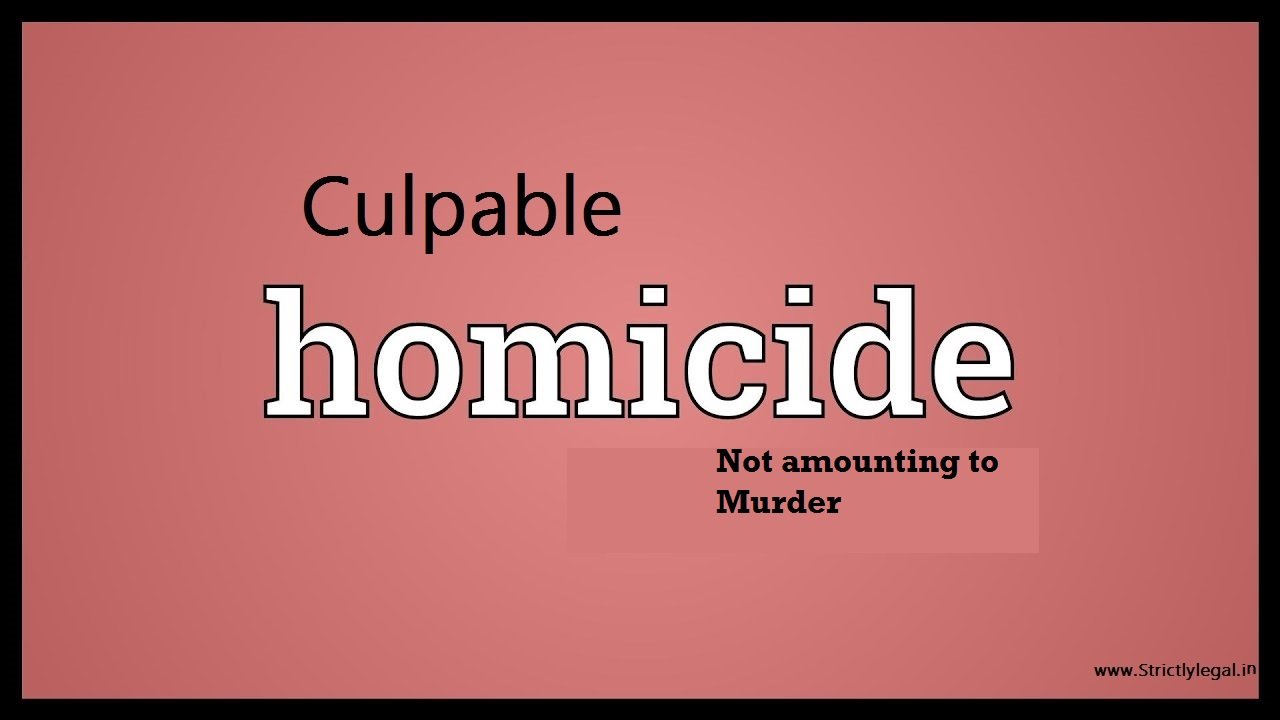This article has been co-authored by Satyam Harshad Nimbalkar
Power to grant pardon is in essence an executive function to be exercised by the Head of the State after taking into consideration various matters which may not be germane for consideration before a court of law.
The executive’s act of grace in showing mercy to an accused or a convicted person takes several forms such as reprieve, pardon, respite, commutation, remission, etc. Pardon and remission stand on different footings and give rise to different consequences. Remission and suspension are also not the same. A suspension means a stay of the sentence of the execution. The effect of an order of remission is to entitle the prisoner to his freedom on a certain date.
Table of Contents
Statutory Provisions for Remission
Indian laws provide pardoning power sourcing from statuary and constitutional authorities. By virtue of article 72 and 161 of the Constitution of India, the President and Governor can grant pardon, to suspend, remit or commute a sentences passed by the courts.
In addition to the above constitutional provisions the Criminal Procedure Code, 1973 (Cr. P.C) provides for Suspension, remission and commutation of sentences. Sections 432, 433, 433A, 434 and 435, empower the government to suspend or remit sentence. Further, Sections 54 and 55 of the Indian Penal Code (IPC) confer power on the appropriate government to commute sentence of death or sentence of imprisonment for life as provided therein. Section 54 of the Indian Penal Code 1860 empowers the appropriate Government i.e. the Central Government in the case of an offence committed in the Union Territories, and State Government in case of an offence committed in the States, to commute i.e. to change a punishment to one of a different type than the originally awarded the sentence of death to any other punishment provided under the Code. The powers vested under Section 55 can be exercised by the Government on its own initiative with no application by the accused in question.
The provisions under sections 54 and 55 of Indian Penal Code have become redundant in view of the similar provisions contained under Section 432 to 434 of the Code of Criminal Procedure 1973 which empowers to the appropriate Government (Central or State) to commute or remit or to suspend the sentence passed by the courts.
It is important to note that the matter of commutation falls beyond the jurisdiction of the courts since the prerogatives of the executive to alter the sentence once it is accorded by the court of law. Thus, it is only the Government concerned that it is competent to commute the sentence of death under section 54 of the IPC read with Section 433 of Cr. P.C. 1973.
Constitutional and Statutory Provisions
The power of the President or Governor to remit sentence awarded by the court is absolute and cannot be fettered by any statutory provision such as Sections 432, 433, 433A of Criminal Procedure code, 1973. This power cannot be altered or modified or interfered with in any manner by any statutory provision or Prison rules.
The authority of the Government to grant remission or to suspend sentence under Section 432 of Cr.P.C is independent of the power conferred on the Governor under Article 161 of the Constitution, no matter both the Government and the Governor have concurrent powers in regard to suspension, remission and commutation of sentence.
It seems that superficially the two powers, one constitutional viz., Article 72 and 161 and the other statutory viz., Section 433A of Cr.P.C. are co- extensive. But two things may be similar but not the same. That is precisely the difference. The power which is the creature of the Code cannot be equated with a high prerogative vested by the Constitution in the highest functionaries of the Union and the States. The source is different, the substance is different, and the strength is different, although the stream may be flowing along the same bed. Higher the power the more cautious would be its exercise. This is particularly so because Section 433-A has been passed by the Parliament on being sponsored by the Central Government itself. The Parliament introduced Section 433-A by the Code of Criminal Procedure (Amendment) Act, 1978.
Suspension, Remission, and Commutation of Sentences
Section 432 of Cr.P.C Power to suspend or remit sentences:
- When any person has been sentenced to punishment for an offence, the appropriate Government may, at any time, without conditions or upon any conditions, which the person sentenced, accepts, suspend the execution of his sentence or remit the whole or any part of the punishment to which he has been sentenced.
- Whenever the application is made to the appropriate Government for the suspension or remission of a sentence the appropriate Government may require the presiding Judge of the Court before or by which the conviction was had or confirmed, to state his opinion as to whether the application should be granted or refused, together with his reasons for such opinion and also to forward with the statement of such opinion a certified copy of the record of trial or of such record thereof as exists.
- If any condition on which a sentence has been suspended or remitted is, in the opinion of the appropriate Government, not fulfilled, the appropriate Government may cancel the suspension or remission, and thereupon the person in whose favor the sentence has been suspended or remitted may if at large, be arrested by any police officer, without a warrant and remanded to undergo the unexpired portion of the sentence.
- The condition on which a sentence is suspended or remitted under this section may be one to be fulfilled by the person in whose favor the sentence is suspended or remitted or one independent of his will. The appropriate Government may, by general rules or special orders, give directions as to the suspension of sentences and the conditions on which petitions should be presented and dealt with: Provided that in the case of any sentence (other than a sentence of fine) passed on a male person above the age of eighteen years, no such petition by the person sentenced or by any other person on his behalf shall be entertained, unless the person sentenced is in jail, and –
Where such a petition is made by the person sentenced, it is presented through the officer in charge of the jail; or
Where such petition is made by any other person, it contains a declaration that the person sentenced is in jail. - The provisions of the above sub-sections shall also apply to any order passed by a Criminal Court under any section of this Code or of any other law which restricts the liberty of any person or imposes any liability upon him or his property.
- In this section and in section 433, the expression “appropriate Government” means,—
In cases where the sentence is for an offence against, or the order referred to in subsection 6 is passed under, any law relating to a matter to which the executive power of the Union extends, the Central Government;
In other cases, the Government of the State within which the offender is sentenced or the said order is passed.
Section 432 incorporates the provisions of section 401 and 402(3) of the Old code. There is no change in substance of the old law. This section does not give any power to the Government to reverse the judgment of the Court, but provides the power of remitting the sentence. The minimum sentence awardable under Section 302 of Indian Penal Code, being life imprisonment no reduction is possible. This power is executive in nature. While Article 161 of the Constitution speaks of grant of reprieves, pardons and remissions etc., it does not speak of imposition of conditions for the grant, whereas section 432 of Criminal Procedure Code speaks of remission or suspension with any condition. Section 432(3) specifically provides for consequences of the conditions, which are contemplated by Section 432(1) of Criminal Procedure Code not being fulfilled. Section 432 (3) contemplates remanding the person so subjected to remission to jail once again. Section 432 of Criminal Procedure Code is not manifestation of Articles 72 and 161 of the Constitution but a separate, though similar provision.
In cases of murder, the Judge may report any extenuating circumstances calling for a mitigation of punishment to the Government, and the Government may thereupon take such action under this section as it thinks fit. The word remit as used in Section 432 is not a term of art. Some of the meanings of the word “remit” are to pardon, to refrain from inflicting, and to give up. There is, therefore, no obstacle in the way of the Governor in remitting a sentence of death. When the concerned Court feels sympathetic towards the accused, owing to some reasons such as the wife of the accused is a cancer patient with six children or the accused is a boy of tender years or accused is a young lady who committed murder under the influence of others but legally constrained to show mercy, then it recommends such cases to the Government because of the power of granting mercy vests with the executive but not with the judiciary.
An order passed under Section 432 Cr.P.C. is justiciable on any of the following grounds:
- That the authority exercising the power had no jurisdiction.
- That the impugned order goes beyond the extent of power conferred by law.
- That the order has been obtained on the ground of fraud or that it has been passed taking into account the extraneous considerations not germane to the exercise of the power or in other words, is a result of malafide exercise of power.
The brother of the murdered person is considered to one of the most aggrieved parties and has the locus standi to challenge the order of remission of punishment. While the State Government is not legally obliged to give reasons for remitting sentence, it is duty bound to reply to allegations made in petition challenging the remission. The State Government is not bound to produce the records under writ of certiorari. The initial onus is on the petitioner to give prima facie evidence to show that the power has been exercised malafide. Reference under sub-section (2) of Section 432 Criminal Procedure Code is not mandatory and therefore non-compliance of the said provision does not make the impugned order without jurisdiction. Even though the sentence Revising Board is not required to give detailed reasons; nevertheless the administrative orders are subject to judicial review.
Section 433 of Cr.P.C – Power to commute sentence:
The appropriate Government may, without the consent of the person sentenced commute-
- a sentence of death, for any other punishment provided by the Indian Penal Code (45 of 1860);
- a sentence of imprisonment for life, for imprisonment for a term not exceeding fourteen years or for fine;
- a sentence of rigorous imprisonment for simple imprisonment for any term to which that person might have been sentenced, or for fine;
- a sentence of simple imprisonment, for fine.
The Supreme Court upheld validity of Section 433, Government cannot reduce or commute sentence to less than 14 years for weighty reasons as the crime was serious.
Restriction on Powers of Remission or Commutation in certain cases
As per Section 433-A of the Code of Criminal Procedure, notwithstanding anything contained in Section 432, where a sentence of imprisonment for life is imposed on conviction of a person for an offence for which death is one of the punishments provided by law, or where a sentence of death imposed on a person has been commuted under Section 433 into one of imprisonment for life, such person shall not be released from prison unless he had served at least 14 years of imprisonment.
A life convict covered by Section 433-A cannot invoke for his premature release under Sections 432 and 433 if he has not completed 14 years of actual imprisonment without any remission. The right to ask for remission of sentence by a life convict would be under the law as was prevailing on the date on which the judgment of conviction and sentence was passed.
To read down or interpret section 433A of the Code with the aid of the changes proposed by the Indian Penal Code (Amendment) Bill would tantamount to hearing the provisions of the said bill as forming part of the Indian Penal Code which is clearly impermissible. To put such an interpretation with the aid of such extrinsic material would result in violence to the plain language of section 433A of the Code
By reason of the powers conferred on Government by statute and on the President or Governor by the Constitution for remission of sentences, a life convict is not entitled, as of right to contend that his life imprisonment ought to be construed as imprisonment for twenty years and that the remissions earned by him in prison ought to be necessarily taken into consideration and he should be prematurely released from prison even if the sentences awarded to him is one of imprisonment for life. Unless the Government specifically grants remission of sentence and orders release prematurely a life convict cannot ask for release on the grounds that he has put in 20 years of sentence in jail with or without remissions.
The mandate of Section 433 Cr.P.C. enables the Government in an appropriate case to commute the sentence of a convict and to prematurely order his release before expiry of the sentence was imposed by courts. Clause (b) of Section 433 Cr.P.C. provides that the sentence of imprisonment for life may be commuted for imprisonment for a term not exceeding 14 years or fine.
The High Court can direct consideration of premature release by the Govt. which has to exercise the power under Section 433 Cr.P.C. in accordance with the rules and established principles.
In Gopal Vinayak Godse v. State of Maharashtra the Constitutional bench of the Supreme Court held that a sentence of transportation for life or imprisonment for life must be treated as transportation or imprisonment for whole of the remaining period of the convict‘s normal life, unless the said sentence is commuted or remitted by the appropriate Government. Dealing with the Rules framed under the Prisons Act, 1894 it held that even though they were statutory in Character they did not confer an indefeasible right on a prisoner sentenced to transportation for life to an unconditional release on the expiry of a particular term including remissions. It is further held that the rules framed under the Prisons Act enabled a prisoner to earn remissions- ordinary, special and State – the said remissions were to be given credit towards his term of imprisonment and for the purpose of working out the remissions the sentence of transportation for life was equated with a definite period, but it is only for that particular purpose and not for any other purpose. Lastly it observed that the question of remission was exclusively within the province of the appropriate Government.
The debate as to what would constitutes ‘life imprisonment’ once again surfaced while dealing the case of Mohd. Munna v. Union of India,it was reiterated that life imprisonment was not equivalent to imprisonment for 14 years or 20 years. Life imprisonment means imprisonment for the whole of the remaining period of the convicted person’s natural life. This Court observed that there was no provision either in the Indian Penal Code or in the Criminal Procedure Code, whereby life imprisonment could be treated as either 14 years or 20 years without there being a formal remission by the appropriate Government. The contention that having regard to the provisions of Section 57 of the Code of Criminal Procedure a prisoner was entitled to be released on completing 20 years of imprisonment under the West Bengal Correctional Services Act, 1992, and the West Bengal Jail Code, was rejected following the decision in Godse’s case.
In Swamy Shraddananda v. State of Karnataka the Court was called upon to consider as to what would constitute ‘life imprisonment’ in a case where death sentence was commuted to life sentence. Swamy Shraddananda was convicted under Section 302 and 201 I.P.C and was sentenced to death for the offence under Section 302 IPC. In appeal the High Court affirmed the conviction and the death sentence awarded. The matter then travelled to the Supreme Court and came up for disposal before a Bench of three Judges. While one of the learned Judges took the view that the appellant deserved nothing but death, the others made it clear that life imprisonment, rather than death, would serve the ends of justice. But the Hon’ble Judges also made it clear that the appellant would not be released from prison till the end of his life. Having examined various decisions on the point which have also been referred to hereinabove, the Hon’ble Judges substituted the death sentence given to the appellant by the Trial Court and confirmed by the High Court with imprisonment for life with a direction that the convict would not be released from prison for the rest of his life.
There is no question of releasing such a lifer early in the absence of an order of commutation under Section 55 of Indian Penal Code by the appropriate Government which term is defined under Section 55(A), I.P.C or under Section 433(b) of Criminal Procedure Code of 1973 by the appropriate Government or on a clemency order in exercise of power under Article 72 or 161 of the Constitution of India. Incidentally it may be stated that Section 54 empowers the appropriate Government to commute the sentence of death for any other punishment provided by the Indian Penal Code.
Section 432 of the Criminal Procedure Code gives the power to the appropriate Government either to suspend or to remit the sentences. Remission schemes are introduced to ensure prison discipline and good behaviors and not to upset sentence; the convict has to pass the remainder of his life in prison but remissions and commutations are granted in exercise or power under Section 432 and 433 carving out an exception in the category of those convicts who have already enjoyed the generosity of executive power on the commutation of death sentence to one of life imprisonment. Even in such case section 433-A of the Code does not insist that the convict pass the remainder of his life in prison but merely insists that he shall have served time for at least 14 years.
In Maru Ram v. Union of India it was held that Sec.433A, in both its limbs (that is both types of life imprisonment specified in it), is prospective in effect. The mandatory minimum of 14 years actual imprisonment will not operate against those whose cases were decided by the trial court before the 18th December 1978, When Sec.433 (A) came into force. All life convicts whose conviction by the Court of first instance was entered prior to that date are entitled to consideration by the Government for release on the strength of earned remissions although a release can take place only if Government makes an order to that effect.
The Code of Criminal Procedure does confer wide powers of remission and commutation of sentences; it emphatically intends to carve out extreme category from the broad generosity of such executive Section 432 and the whole mandate of the rest of the section of Sec.433A to a serious restriction. This embargo directs that commutation in such cases shall not reduce the actual duration of imprisonment below 14 years.
The State has the power to make rules on Remission Systems and many States have for long made and worked such rules. They are intra-vires, since even new legislations on remissions and rewards are good under Entry 4 of List II. These vintage schemes do not vanish with the enactment of the Constitution but suffer a partial eclipse if they conflict with and become repugnant to a Central law like the Procedure Code. If Section.433A by sheer repugnancy, forces a permanent holiday on the prison remission laws of the States Vis -a- Vis certain classes of lifers the former must prevail in situations of irreconcilability. Assuming that Rules under the Prisons Act are valid and cannot be dismissed as State Law, a harmonious reading of Section 433-A and the Prison Rules must be the way out. Otherwise the later law must prevail or implied repeal may be inferred. The notwithstanding clauses in Section 433-A the Remission Rules and like Provisions stand excluded so far as ‘lifers’ punished for capital offenses are concerned.
Even so, we must remember the constitutional status of Articles 72 and 161 and it is common ground that section 433-A does not and cannot affect even a wee-bit the pardon power of the Government or the President. The necessary sequel to this logic is that notwithstanding Section 433-A the President and the Governor continue to exercise the power of commutation and release under the aforesaid Articles. To say otherwise would offend not only against the language of the statute but against the spirit of the law, that is to say, the object with which the law was passed. A large number of cases in which the accused suffer long under trial detentions are cases punishable with imprisonment for life. Usually, those who are liable to be sentenced to imprisonment for life are not enlarged on bail. To deny the benefit of Section 428 to them is to withdraw the application of a benevolent provision form a large majority of cases in which such benefit would be needed and justified.
Therefore one who could have been visited with the extreme punishment of death but on account of the sentencing courts generosity was sentenced to the lesser punishment of imprisonment for life and another who actually was sentenced to death but on account of executive generosity his sentence was commuted under section 433 (a) for imprisonment for life have been treated under section 433A as belonging to that class of prisoners who do not deserve to be released unless they have competed 14 years of actual incarceration.
The case of Bhagirath was considered in the case of Ashok Kumar v. Union of India,It was further affirmed that where a person has been sentenced to imprisonment for life remissions earned by him during his internment in prison under the relevant remission rules have a limited scope and must be confined to the scope and ambit of the said rules and do not acquire significance until the sentence is remitted under section 432, in which case the remission would be subject to limitation of Section 433-A of the Code or constitutional power has been exercised under Art 72 and161 of the Constitution.
Conclusion
The power of pardoning and remission is the noblest prerogative of sovereignty. If the laws are too severe, the power of pardoning is a necessary corrective: but that corrective is itself evil. Make good laws, and there will be no need for a power to annul them.
If the punishment is necessary, it ought not to be remitted: if it is not necessary, the convict should not be sentenced to undergo it. Even though there are statutory rules for remission, the authorities are not implementing these guidelines properly. Various cases that came before the several High Courts and Supreme Court have revealed this fact. Frequently the equality clause of the Indian Constitution is violated by the prison authorities. Therefore, it is required that strict rules have to be framed for granting remission.
This article has been co-authored by Satyam Harshad Nimbalkar

Users not registered with Strictlylegal can Email us their content and the same are posted through this account. In case of abuse, kindly let us know at [email protected]




